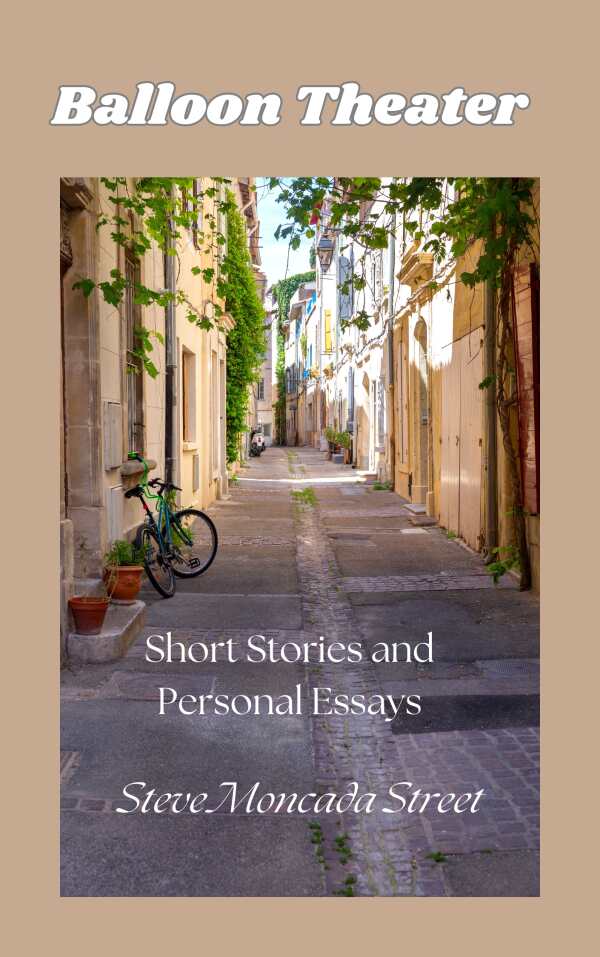Balloon Theater
Short Stories and Personal Essays
Concerned with interiority and the distances that exist between people, Balloon Theater is an evocative literary collection.
In the pieces of Steve Moncada Street’s atmospheric literary collection Balloon Theater, people strive for connections, working through alienation, otherness, and longing. They face star-crossed relationships but also come to accept themselves for who they are.
The book is divided into three parts. The first section concerns expatriates abroad, often in the Middle East, where they feel distance from the cultures they’re immersed in; in the second, Midwesterners take center stage and grapple with domestic issues, including complicated love interests. Some entries are works of flash fiction and microfiction; other stories stretch to around twenty pages.
Schools are frequent among the book’s settings, which are detailed in an evocative manner: a landmark is recognized from a guidebook; tourists wander narrow streets “forever before they saw something they recognized”; an acquaintance highlights places on a map to avoid. And the book closes with personal essays that round its perspectives out with their glimpses at the inspirations behind the stories.
In “Balloon Theater,” a couple in Cairo nears the end of their work visas and faces a major decision. In “A Quiet Voice,” a tourist watches a boy dance before a mosque crowd late at night. “Age” concerns a graduate student’s encounters with a local eccentric at the laundromat and subsequent puzzling over the man’s disappearance. In “Skin,” a preparatory school teacher who once abandoned his family to marry an Egyptian woman copes with a cancer diagnosis, thinking of it as a punishment. And in “Delight for the Wretched,” set after the election of President Barack Obama, the value of diversity in Buffalo is mused through.
Lightly plotted but rich in feeling, these stories are all about their subtexts. Their style is terse and even elliptical, and they make use of a judicious selection of details that suggest hidden depths, as with the line “The anguish from the days of his career troubles returned to him tenfold.” Elsewhere, old friends reunite; one confesses the worst facts of his life as if “revealing himself were some kind of virtue,” while the other only discloses information that would benefit him. But life-changing events are presented in an off-handed way so that the stories come to seem more concerned with interiority and the distance between people than they are with reaching clear conclusions. Indeed, piqued curiosity is not always satisfied, leaving audiences wondering over qualities like anger expressed “over issues such as toast.”
In the evocative literary collection Balloon Theater, expatriates, young couples, and people coming to terms with their roles in the world leave haunting impressions.
Reviewed by
Joseph S. Pete
Disclosure: This article is not an endorsement, but a review. The publisher of this book provided free copies of the book and paid a small fee to have their book reviewed by a professional reviewer. Foreword Reviews and Clarion Reviews make no guarantee that the publisher will receive a positive review. Foreword Magazine, Inc. is disclosing this in accordance with the Federal Trade Commission’s 16 CFR, Part 255.

